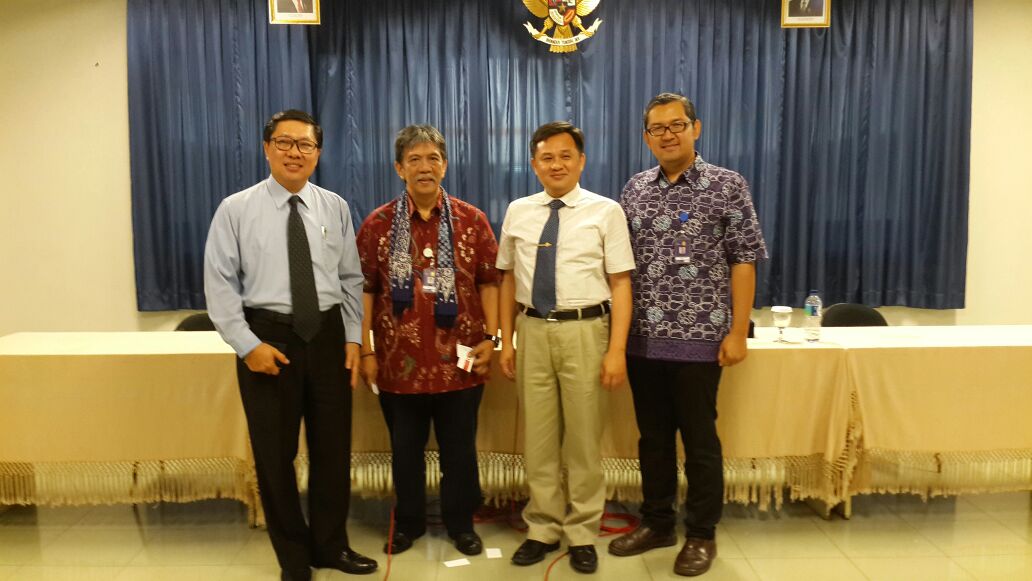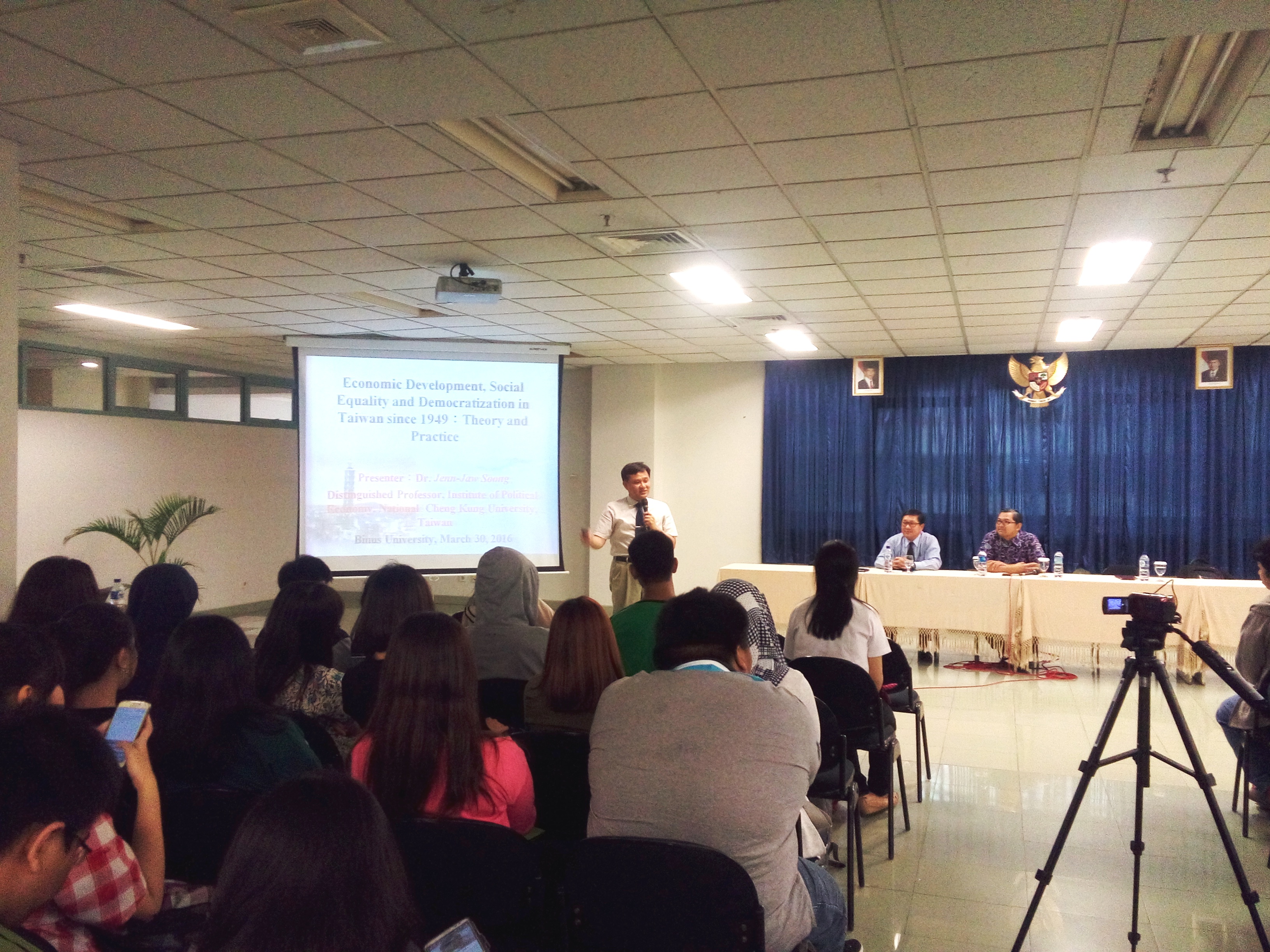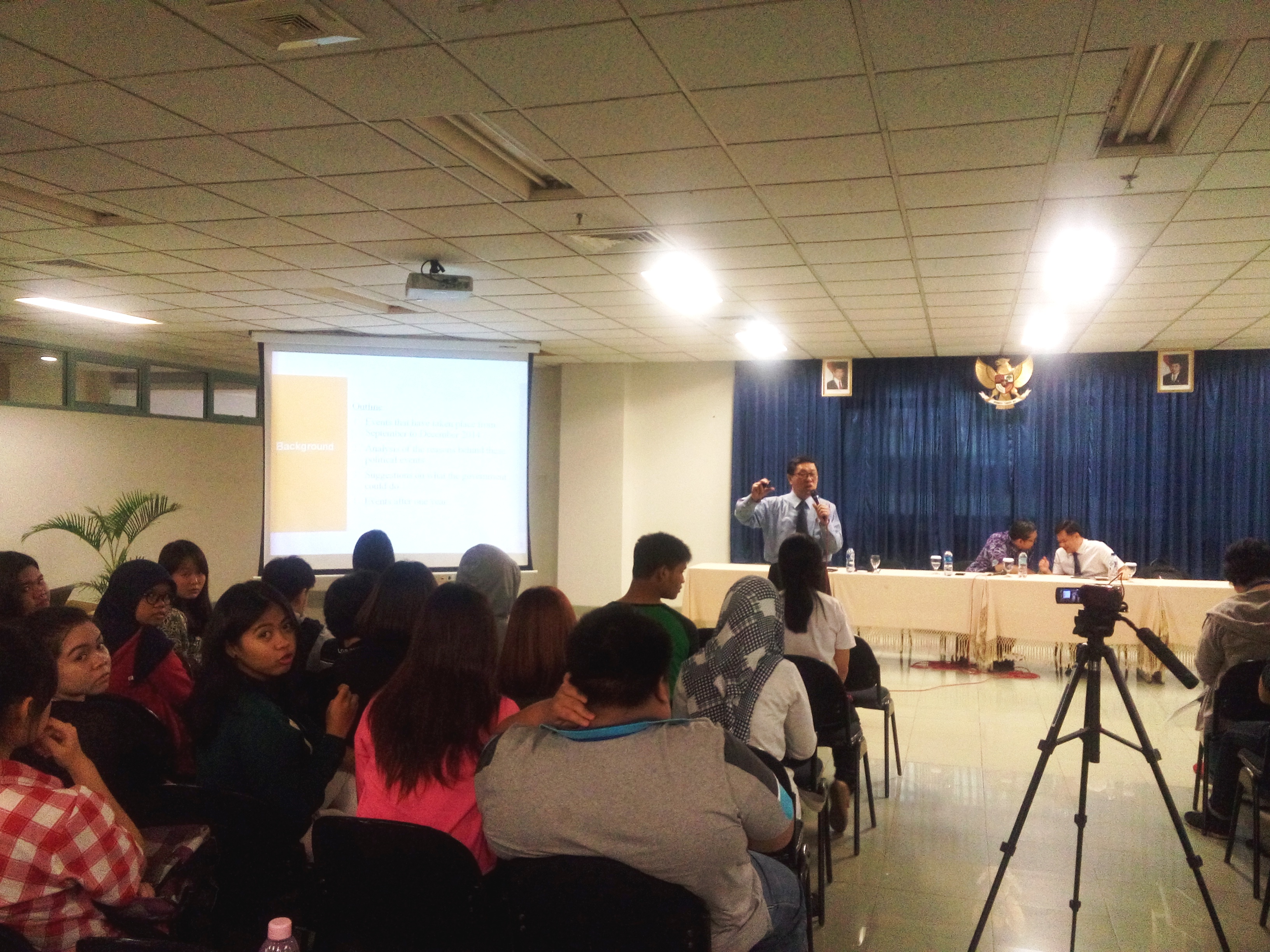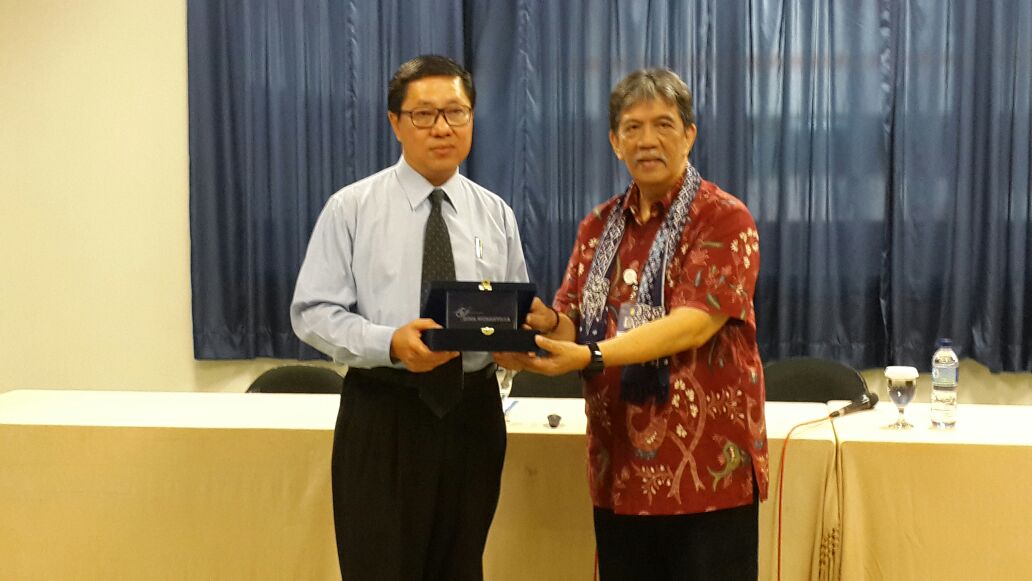Political Economy and Development: Lessons from Taiwan and Hongkong

Prof. Yung, Binus Faculty of Humanities Dean Dr. Johannes Rumeser, Prof. Soong, and IR Binus Head of Department Prof. Tirta Mursitama
Bina Nusantara University International Relations Department held the 23rd International Relations Lecture Series (IRLS) on Wednesday, March 30, 2016 at Binus University’s Anggrek Campus. On this occasion, two speakers were invited: Professor Soong Jenn-Jaw of the Institute of Political Economy, National Cheng Kung University, Taiwan, and Professor K. Wong Yung of the School of Professional Education and Executive Development (SPEED), Hong Kong Polytechnic University.

Presentation by Prof. Soong
Both speakers presented two two topics that are different, but go in the same main topic of political economy and development. The first speaker, Prof. Soong, delivered a presentation titled “Economic Development, Social Equality, and Democratization since 1949: Theory and Practice”. In his presentation, Prof. Soong explained the theoretical framework of the relationship between state, society, and market. He explained the theoretical framework by selecting Taiwan as a case study. In his explanation, the economic development of Taiwan’s politics started with state-led development, then progressed up to the current stage of society-centered governance. The theoretical framework, although discussed with the case study of Taiwan, can also be used as learning materials for other third world countries.
The second presentation performed by Prof. Yung was titled “Hong Kong’s Development and Umbrella Movement”. In his presentation, Prof. Yung explained the background of the protest movement called Umbrella Movement in Hongkong, 2014. This movement mostly involved students and occured due to the Chinese government’s decision related to the electoral reforms, especially the issue of Hong Kong people’s freedom to elect their head of government, i.e. the Chief Executive, without approval from Beijing for each candidate nominated as Chief Executive. The protest movement performed in the main streets of Hong Kong did not completely go peacefully. There were several negative impacts caused by the protest movement, such as congestion, delays in economic activity, and other movements that supported the government.
Ekonomi Politik dan Pembangunan: Pelajaran dari Taiwan dan Hongkong
Departemen Hubungan Internasional Universitas Bina Nusantara kembali mengadakan International Relations Lecture Series (IRLS) untuk ke-23 kalinya pada Rabu, 30 Maret 2016 bertempat di Kampus Anggrek Binus. Pada kesempatan kali ini, IRLS mengundang dua orang pembicara, yaitu Profesor Soong Jenn-Jaw dari Institute of Political Economy, National Cheng Kung University, Taiwan dan Profesor Wong K. Yung dari School of Professional Education and Executive Development (SPEED), Hongkong Polytechnic University.
Pemaparan dari Prof. Yung
Pemaparan kedua dibawakan oleh Prof. Yung dengan judul “Hongkong’s Development and Umbrella Movement”. Dalam presentasinya Prof. Yung menjelaskan latar belakang terjadinya gerakan protes yang dinamai Umbrella Movement pada 2014 di Hongkong. Gerakan yang sebagian besar melibatkan mahasiswa tersebut terjadi karena keputusan pemerintah Republik Rakyat Tiongkok terkait reformasi pemilu Hongkong, terutama isu tentang kebebasan masyarakat Hongkong untuk memilih kepala pemerintahan Hongkong, Chief Executive, tanpa harus ada persetujuan dari Beijing untuk setiap kandidat Chief Executive yang dicalonkan. Gerakan protes yang dilakukan di jalan-jalan utama Hongkong tersebut tidak sepenuhnya berjalan secara damai. Ada beberapa dampak negatif yang disebabkan oleh gerakan protes tersebut, seperti kemacetan, terhambatnya aktivitas ekonomi, dan gerakan lain yang mendukung pemerintah.


